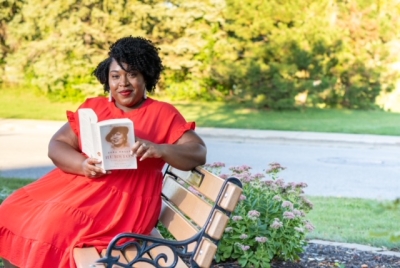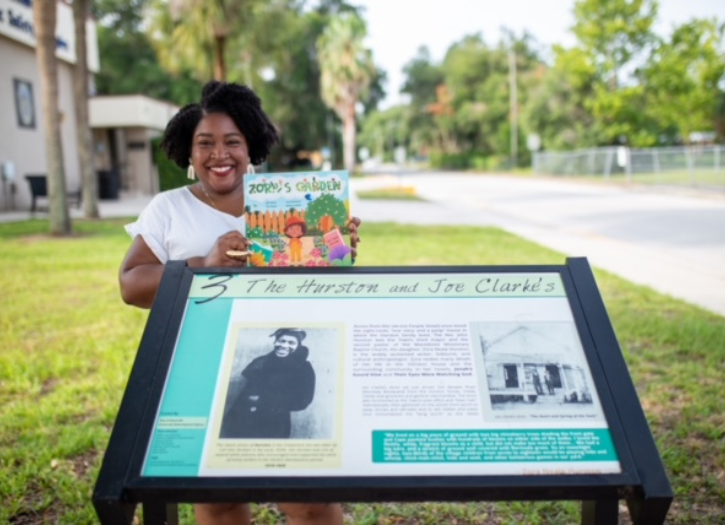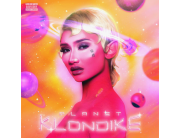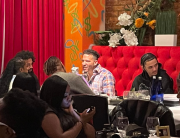Why is it important to show appreciation to our ancestors?
Rae: Moving with a spirit of gratitude for our ancestors and their journeys is truly an act of self-love. To understand this, we first must understand the fullness that self-love embodies. Really there is no “self.” We are a culmination of so many energies, experiences, and gifts. We are the living manifestation of the work and choices of our ancestors-past tense and active present tense. Our ancestors are a part of our “self.” The connection with them has no end. So, when we show appreciation for our ancestors, we are acknowledging their vital part in our existence and giving thanks for their known and unknown contributions to our being. When we don’t honor our ancestors, we miss the deep magical connections of life that transcend time. It’s such a gift to be connected to those who have come before us. To benefit from their divine wisdom. When we actively nurture that relationship, our ancestors give guidance, a feeling of support, and so much love.
In what ways can we show our appreciation?
Rae: How you honor, celebrate, and show appreciation to your ancestors is an individual choice. It’s also specific to your relationship or connection to each of your ancestors. Think about this in the same way you choose a gift for your loved ones. You take what you know about them to pick a gift that is meaningful and that you hope they will love. This is how I approach showing appreciation to my ancestors. To get you started, I would say their favorite things are always a great place to start. Some options for honoring an ancestor could be sharing memories about them to keep their memory alive. You could cook their favorite meal or go all out by creating an ancestral altar that you maintain regularly. For me, my two ancestors that I show the most appreciation for are Zora Neale Hurston and my grandfather. Zora has changed every area of my life in the most unimaginable ways, so aside from talking about and to her daily, I have an altar for her. Whenever I feel the inclination, I cook Zora’s favorite meal and place a portion for her on the altar. Sometimes I leave her a cup of black coffee, light her a cigarette, or place a vase of fresh flowers for her on the altar. For my grandfather, my son shares his middle name. I tell stories about him to my son regularly, teach my son about his hobbies, and we cook his favorite foods often. When you do each thing, pay attention to how you feel after showing them appreciation.

Give us a fun, little-known fact about Zora?
Rae: Although Zora is most widely known for her great literary work Their Eyes Were Watching God, her legacy as a cultural anthropologist and accomplished ethnographer is ever-present. Zora’s own reverence for elders and ancestors can be seen in her posthumously published book Barracoon: The Last Black Cargo. In the book, she records the first-hand account of the formerly enslaved Oluale Kossula (known as Cudjo Lewis) entirely by ear. Reading it is like the most beautiful music. For me, it’s like hearing my beloved grandfather talk.
One fun fact about Zora is that she did this important work without humor, sass, and a level of care that solidified her standing as the most successful folklorist of her time. In a December 1927 letter to Langston Hughes-her best friend during the Harlem Renaissance-Zora says, “I shall see Cudjoe Lewis first as he is old and may die before I get to him otherwise.” In a July 1928 letter to Langston, Zora showcased her protectiveness of another formerly enslaved individual. She pens, “Oh, almost forgot!
Found another one of the original Africans, older than Cudjoe…She is delightful, but no one will ever know about her but us.”
Not only can you read Zora’s account, but you can watch the only footage ever taken of Oluale Kossula in the documentary Descendants on Netflix. That footage was taken by Zora who is credited as the first Black woman filmmaker.
How can our viewers remain connected with you:
Rae: https://instagram.com/raechesny?igshid=MzRlODBiNWFlZA==
Photo Credits: Photo Provided







Add Comment